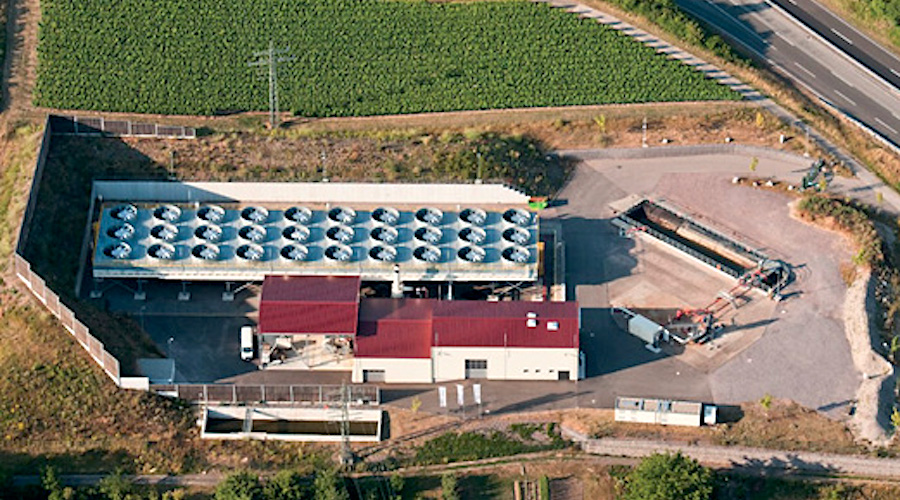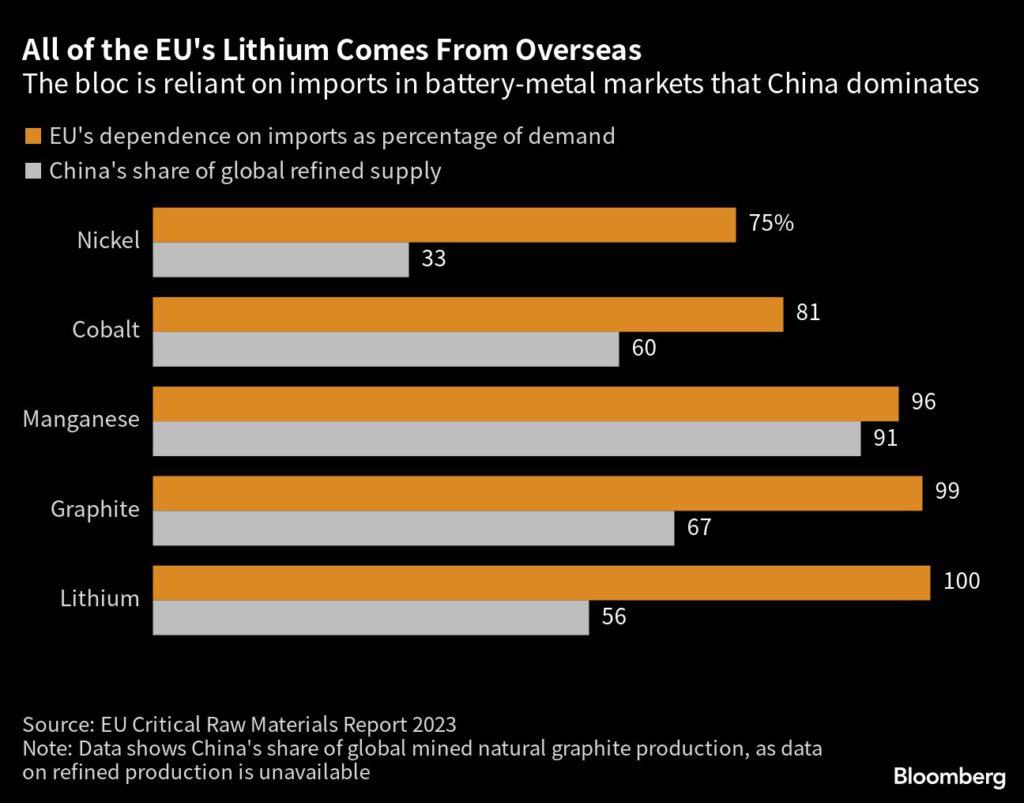
Vulcan Energy Resources Ltd. spent years battling skeptics who said its plan to extract low-cost, zero-carbon lithium from a brine field in Germany was too good to be true. Now it’s trying to convince a potential investor with a very large wallet: the German government.
Company executives have been in Berlin this week to seek support for the €1.5 billion ($1.6 billion) project in the upper Rhine Valley that the firm hopes to bring online in 2025.
Western governments are racing to secure supplies of critical minerals needed to power the energy transition, but key questions include how much funding they’re willing to provide and where it will go. Vulcan, listed in Germany and Australia, is among several start-ups seeking to help Europe reduce its reliance on imports of lithium and other battery metals.
“We need the political backing now, as we still need to raise the lion’s share of our planned investment sum,” Vulcan chief executive officer Francis Wedin said in an interview. “We’re aiming to raise the money via debt and equity, but we also need grants.”

The European Union and the US are seeking to challenge China’s dominance in a global competition to produce materials that have applications in everything from health care to electric vehicles.
The EU’s new landmark Critical Raw Materials Act promises to open financing channels, but critics say the bloc still risks losing out on investment due to more lucrative and immediate incentives and tax breaks offered by the US Inflation Reduction Act.
Chancellor Olaf Scholz’s government has indicated it wants to support start-ups like Vulcan in their effort to extract critical raw materials in Germany. It generally doesn’t comment on individual companies before a decision on grants has been made.
Germany plans to set up a state fund worth between €500 million and €1 billion to support the mining of raw materials critical to accelerate the country’s green transition, Economy Minister Robert Habeck said this week. However, that’s around half the amount previously considered, reflecting new spending constraints as the government tries to slash its budget for next year.
Capital-market fundraising has proved challenging for lithium developers, and the risk is that some prospective producers will run out of cash before public money starts flowing.
Skepticism around Vulcan’s project came to a head in 2021 when a short seller cast doubts on its economics. However, a steady string of successes in production trials has helped to lure prospective buyers including Stellantis NV, Volkswagen AG and South Korea’s LG Energy Solution Ltd. The short seller ultimately apologized after a legal challenge by Vulcan.
“We are convinced that our pitch comes at the right time as the European Union is pushing to reduce its dependence on China as one of the main suppliers for battery materials,” Wedin said. “Our message is that we have proven that our technology works and that we’re now entering the first stage of producing carbon-neutral lithium on an industrial scale in the heart of Europe.”
(By Michael Nienaber, Petra Sorge and Mark Burton)
Comments